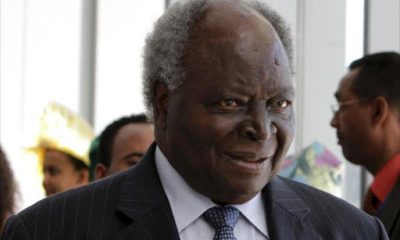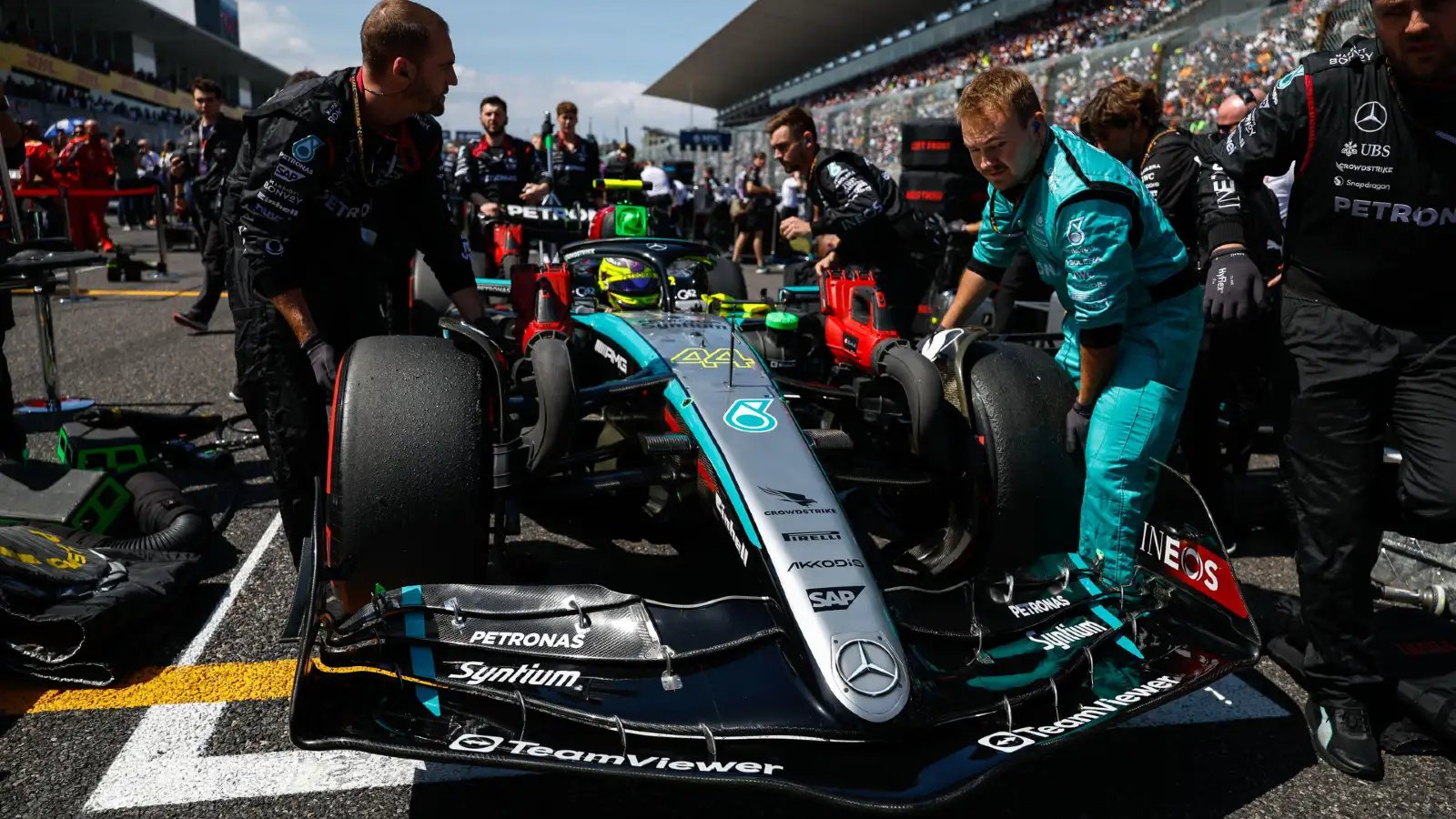For the last decade, Mercedes-AMG Petronas Formula One Team has been the dominant force in Formula 1, rewriting the record books and redefining excellence in motorsport.
However, as the 2020s progressed, cracks began to appear in the armor of the Silver Arrows, signaling a regression from their once-unassailable position at the top of the grid. In this article, we delve into the factors contributing to Mercedes’ regression in Formula 1 and analyze the challenges faced by the team in their quest for continued success.
Get the 1xBet bonus and start your smart way in betting.
Dawn of Dominance: Mercedes’ Era of Excellence
Mercedes’ journey to dominance in Formula 1 began with their return to the sport as a full-fledged works team in 2010. With the advent of the hybrid era in 2014, the team’s fortunes skyrocketed as they capitalized on the new regulations to establish themselves as the preeminent force in Formula 1. Led by the formidable duo of Lewis Hamilton and Nico Rosberg, Mercedes embarked on a relentless pursuit of victory, clinching multiple world championships and rewriting the record books with unparalleled success.
The Highs and Lows of 2020: A Season of Uncertainty
The 2020 Formula 1 season was a rollercoaster ride for Mercedes, marked by moments of triumph and adversity. While the team continued winning with another Constructors’ Championship, their dominance was punctuated by occasional setbacks and challenges from rival teams, most notably Red Bull Racing. Technical glitches, strategic mishaps, and fierce competition on the track highlighted the Silver Arrows’ vulnerabilities, foreshadowing the challenges ahead.
Regulatory Changes: Adapting to a Shifting Landscape
One of the key factors contributing to Mercedes’ regression in Formula 1 has been the impact of regulatory changes aimed at leveling the playing field and promoting closer competition.
As Formula 1 seeks to enhance the spectacle of racing and increase parity among teams, new regulations governing aerodynamics, engine development, and budget caps have been introduced, posing challenges for established powerhouses like Mercedes. Adapting to these changes while maintaining their competitive edge has proven a formidable task for the Silver Arrows.
Rising Competition: The Emergence of New Challengers
In addition to regulatory changes, Mercedes has also faced increased competition from rival teams eager to dethrone the reigning champions. Teams like Red Bull Racing and Scuderia Ferrari have made significant strides in closing the performance gap with
Mercedes, posing a credible threat to their dominance on the track. With talented drivers, innovative engineering, and strategic prowess, these challengers have raised the stakes in Formula 1, intensifying the battle for supremacy and putting pressure on Mercedes to deliver consistently strong performances.
Internal Dynamics: Managing Team Dynamics and Transitions
Amidst external challenges, Mercedes has also had to contend with internal dynamics and transitions within the team. Nico Rosberg’s retirement in 2016 and the subsequent arrival of Valtteri Bottas as Hamilton’s teammate brought about changes in team dynamics and leadership, requiring adjustments both on and off the track. Additionally, the departure of key personnel and changes in technical leadership have further contributed to the team’s evolution, presenting both opportunities and challenges for Mercedes as they navigate the complexities of Formula 1.
Strategic Evolution: Embracing Innovation and Adaptation
Despite their challenges, Mercedes remains committed to maintaining their competitive edge through strategic evolution and innovation. From investing in research and development to refining their engineering prowess, the team continues to push the boundaries of performance and technology in Formula 1. By embracing change and adapting to new realities, Mercedes aims to overcome the hurdles of regression and position themselves for sustained success in the ever-evolving landscape of motorsport.
Looking Ahead: The Road to Recovery and Renewed Success
As Mercedes navigates the challenges of regression in Formula 1, they remain steadfast in their commitment to reclaiming their status as the dominant force on the grid. With a talented roster of drivers, a world-class engineering team, and a storied legacy of success, the Silver Arrows are well-positioned to overcome adversity and return to their winning ways. By harnessing their collective expertise, resilience, and determination, Mercedes aims to write a new chapter of triumph and renewal in the annals of Formula 1 history.
In the dynamic and fiercely competitive world of Formula 1, regression is an inevitable part of the journey for even the most dominant teams. Yet, through adversity, true champions are forged, and Mercedes remains determined to rise to the challenge and reclaim their rightful place at the summit of motorsport. As they embark on the road to recovery and renewed success, the Silver Arrows stand poised to overcome the obstacles and write the next chapter of their storied legacy in Formula 1.
Kenya Insights allows guest blogging, if you want to be published on Kenya’s most authoritative and accurate blog, have an expose, news TIPS, story angles, human interest stories, drop us an email on [email protected] or via Telegram

 Investigations1 week ago
Investigations1 week ago
 Investigations1 week ago
Investigations1 week ago
 Investigations1 week ago
Investigations1 week ago
 Investigations1 week ago
Investigations1 week ago
 Opinion2 weeks ago
Opinion2 weeks ago
 News2 weeks ago
News2 weeks ago
 Investigations1 week ago
Investigations1 week ago
 Investigations1 week ago
Investigations1 week ago
















